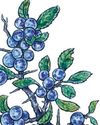
ALL gardens go through change, but those surrounding the Mill House in Balcombe, West Sussex, have survived an impressive cycle of highs and lows. In the 1930s, the gardens were renowned for their exuberant borders and understated meadows. The then owner, Maude Haworth-Booth, was a friend and disciple of William Robinson who lived and gardened at nearby Gravetye Manor. Her book, My Garden Diary, which contains a foreword from Robinson, describes dense plantings of hardy perennials mixed with shrubs, climbers and native plants to create a naturalistic-looking garden scene of the sort that Robinson championed.
When Graeme and Alison Musker acquired the property in 1998, the garden’s glory days were long past, choked by bindweed and smothered with ground elder. The Muskers sought the help of local gardener Alex Bell and, since then, they have nurtured, cajoled and, sometimes, strong-armed the garden back into being a place of beauty and tranquillity.
‘The first year, the garden was left fallow,’ says Mr Bell, ‘and we simply started digging out weeds, including about 70 self-sown alders.’ Planting began the following year in the parts of the garden closest to the house, three mid-18th-century former millers’ cottages that have been joined to create a single home. Skirting the house is a terrace built of huge slabs of Horsham stone and looking as old as the cottages—although, in fact, it was laid recently—which leads to an impressive mixed border, nearly 40 yards long.
Denne historien er fra September 08, 2021-utgaven av Country Life UK.
Start din 7-dagers gratis prøveperiode på Magzter GOLD for å få tilgang til tusenvis av utvalgte premiumhistorier og 9000+ magasiner og aviser.
Allerede abonnent ? Logg på
Denne historien er fra September 08, 2021-utgaven av Country Life UK.
Start din 7-dagers gratis prøveperiode på Magzter GOLD for å få tilgang til tusenvis av utvalgte premiumhistorier og 9000+ magasiner og aviser.
Allerede abonnent? Logg på

Kitchen garden cook - Apples
'Sweet and crisp, apples are the epitome of autumn flavour'

The original Mr Rochester
Three classic houses in North Yorkshire have come to the market; the owner of one inspired Charlotte Brontë to write Jane Eyre

Get it write
Desks, once akin to instruments of torture for scribes, have become cherished repositories of memories and secrets. Matthew Dennison charts their evolution

'Sloes hath ben my food'
A possible paint for the Picts and a definite culprit in tea fraud, the cheek-suckingly sour sloe's spiritual home is indisputably in gin, says John Wright

Souvenirs of greatness
FOR many years, some large boxes have been stored and forgotten in the dark recesses of the garage. Unpacked last week, the contents turned out to be pots: some, perhaps, nearing a century old—dense terracotta, of interesting provenance.

Plants for plants' sake
The garden at Hergest Croft, Herefordshire The home of Edward Banks The Banks family is synonymous with an extraordinary collection of trees and shrubs, many of which are presents from distinguished friends, garnered over two centuries. Be prepared to be amazed, says Charles Quest-Ritson

Capturing the castle
Seventy years after Christian Dior’s last fashion show in Scotland, the brand returned under creative director Maria Grazia Chiuri for a celebratory event honouring local craftsmanship, the beauty of the land and the Auld Alliance, explains Kim Parker

Nature's own cathedral
Our tallest native tree 'most lovely of all', the stately beech creates a shaded environment that few plants can survive. John Lewis-Stempel ventures into the enchanted woods

All that money could buy
A new book explores the lost riches of London's grand houses. Its author, Steven Brindle, looks at the residences of plutocrats built by the nouveaux riches of the late-Victorian and Edwardian ages

In with the old
Diamonds are meant to sparkle in candlelight, but many now gather dust in jewellery boxes. To wear them today, we may need to reimagine them, as Hetty Lintell discovers with her grandmother's jewellery